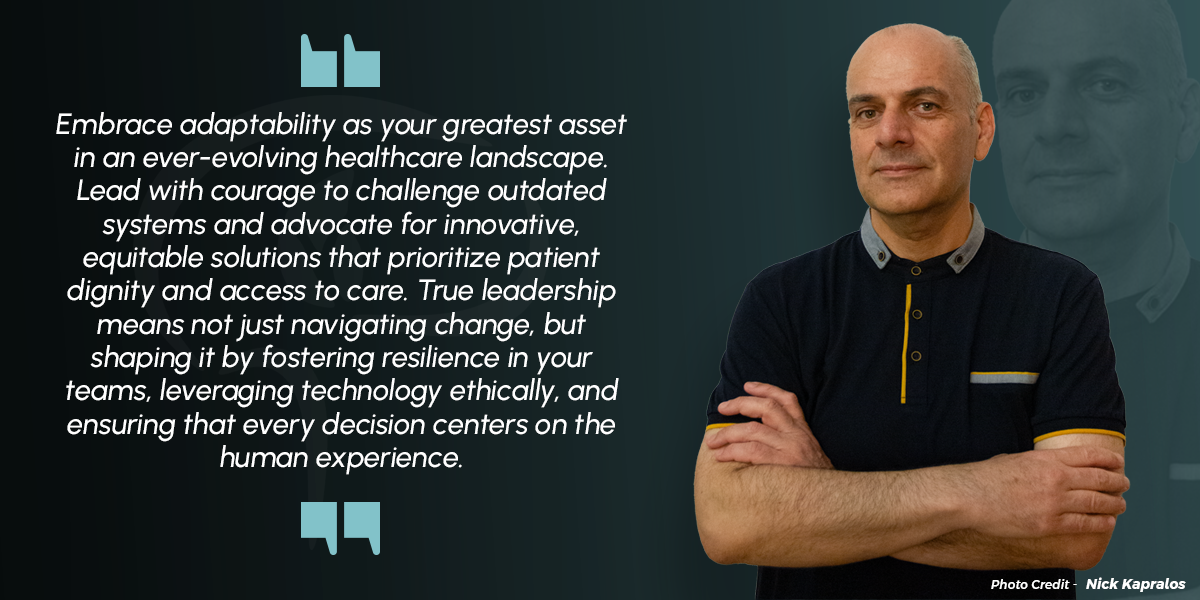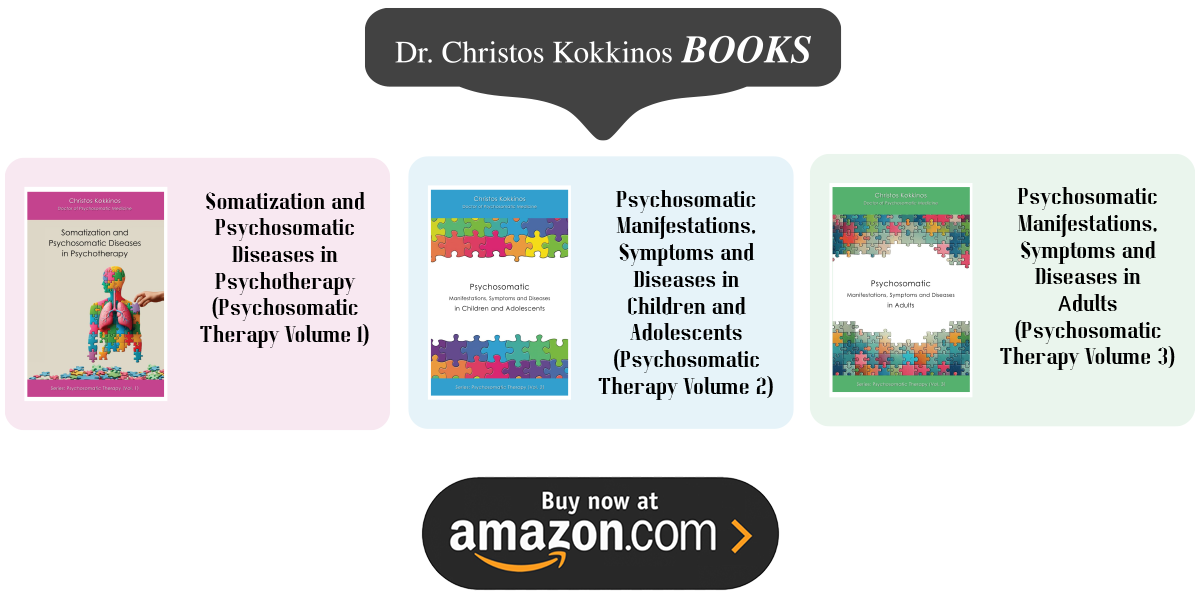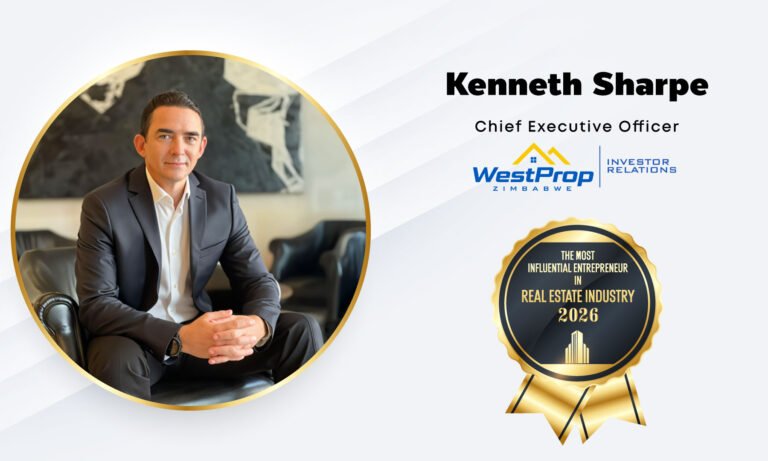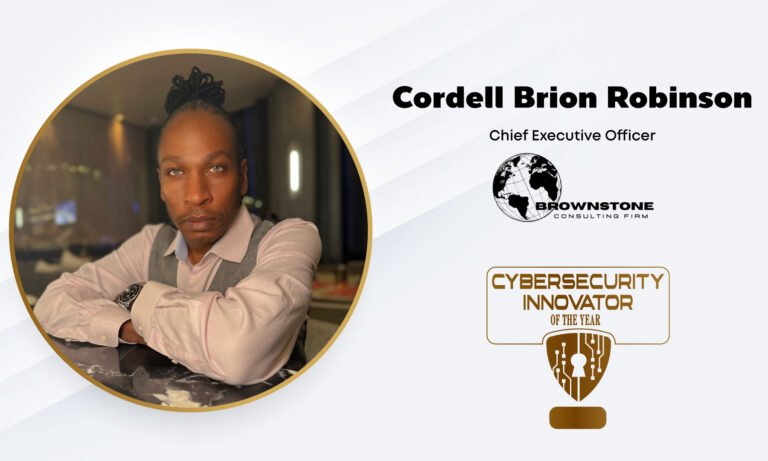The Most Influential Healthcare Leader You Must Follow – 2025
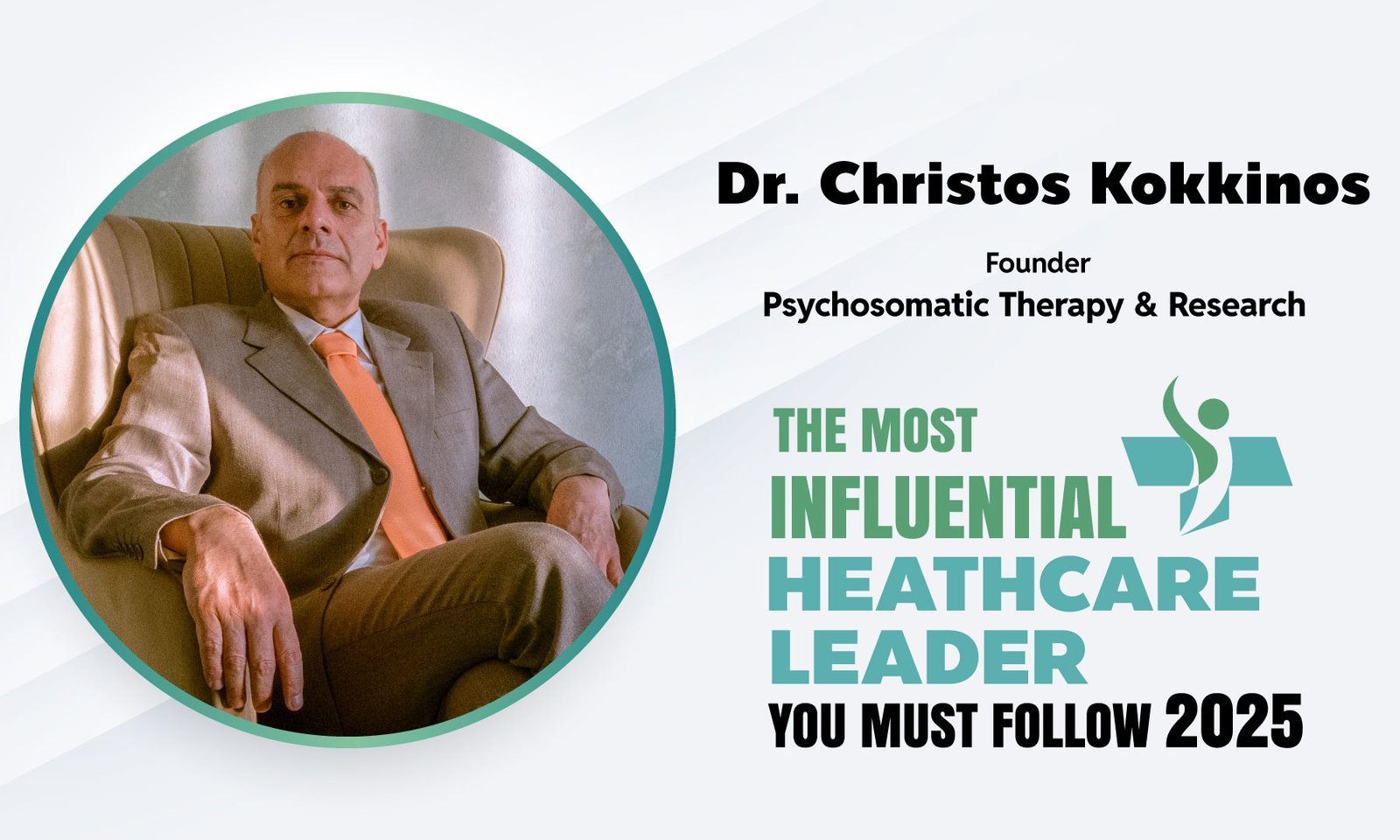
Dr. Christos Kokkinos: Bridging Mind, Body and Soul to Redefine Modern Healthcare
By The Influential Today Magazine
In a world where medicine often focuses on symptoms rather than the whole person, a few visionary leaders are championing a more integrated and compassionate approach. The Influential Today Magazine is honored to recognize Dr. Christos Kokkinos as The Most Influential Healthcare Leader You Must Follow for 2025. A pioneer in psychosomatic medicine, Dr. Kokkinos has dedicated his life to exploring the profound connections between our psychological and physical selves. His work is not just reshaping clinical practice; it is calling for a fundamental shift in how we perceive illness, healing, and the human experience itself. Through his unique journey, groundbreaking research, and unwavering commitment to person centered care, he is shaping a new generation of healthcare professionals equipped to treat the person, not just the disease.

The Seeds of Curiosity: An Early Calling to Understand the Human Condition
Every profound journey has a beginning, a moment that plants a seed of curiosity. For Dr. Christos Kokkinos, born in Germany, that moment arrived with a Christmas gift from his grandmother at the tender age of five. The gift was a volume from The Wonderful World of Knowledge series, specifically the one on the Anatomy and Physiology of the Human Body. What made it magical was its use of Disney characters to explain complex science. “The vividly illustrated characters brought the human body to life for me,” Dr. Kokkinos recalled. “Although I couldn’t yet read, the images sparked a sense of wonder about what lies within us.”
This innate curiosity about the inner workings of the human body soon collided with a deeply formative and tragic event. A young classmate, who he knew had health issues and lived in his neighborhood, passed away suddenly in the classroom, right at the desk next to his. The incident left him in profound shock and with a cascade of unanswered questions. He turned to his grandmother’s illustrated book, seeking answers and trying to make sense of the incomprehensible loss. “I tried to make sense of what had happened to her,” he shared, “but I felt I lacked answers to many questions.”
His family’s move to Greece during his formative years further shaped his intellectual path. There, he was exposed to the foundational pillars of Western thought. The teachings of ancient Greek philosophers like Plato, Aristotle, Epicurus, Asclepius, and Hippocrates became a part of his education. These were the minds that laid the groundwork for philosophy, psychology, and medicine, introducing a holistic view of human existence that intricately linked mind, body, and spirit. These early encounters, from the wonder sparked by a childhood book to the deep questions prompted by tragedy and the wisdom of ancient thinkers, nurtured a lifelong passion for understanding the complex tapestry of human nature.
From Oncology to Psychology: A Journey to Connect Mind and Body
The path from youthful curiosity to professional expertise was one of dedication and continuous learning. It became clear to Dr. Kokkinos from an early age that his interest was centered on people, and the field of health gradually became his primary focus. After completing his initial studies, he embarked on a demanding career that would span over fifteen years in the oncology departments of public hospitals. His specialized role involved designing radiotherapy treatments for cancer patients, a field requiring immense precision and technical skills.
However, his quest for understanding was not confined to a single discipline. While deeply engaged in his work in oncology, he simultaneously pursued studies in nutritional approaches to health. This dual focus led him to work with individuals suffering from eating disorders, where the psychological components of physical illness are starkly evident. He served these individuals both as a private practitioner and as an external collaborator with private clinics, gaining invaluable experience outside the traditional hospital setting.
It was through these daily, intimate interactions with two very different patient populations, those battling cancer and those struggling with eating disorders, that a crucial realization began to dawn on him. He observed firsthand the critical and undeniable role that psychological factors played in the onset, progression, and experience of physical illness. This profound insight prompted a significant pivot in his career. He decided to formally train in Clinical Psychology and Psychotherapy, immersing himself in three different therapeutic approaches to gain a broad perspective. This was followed by postgraduate studies in Psychology and Neuropsychology, further solidifying his expertise in the intricate relationship between the mind and the brain. His journey illustrates a remarkable transition from a technical medical specialty to a deeply integrated, holistic understanding of health.
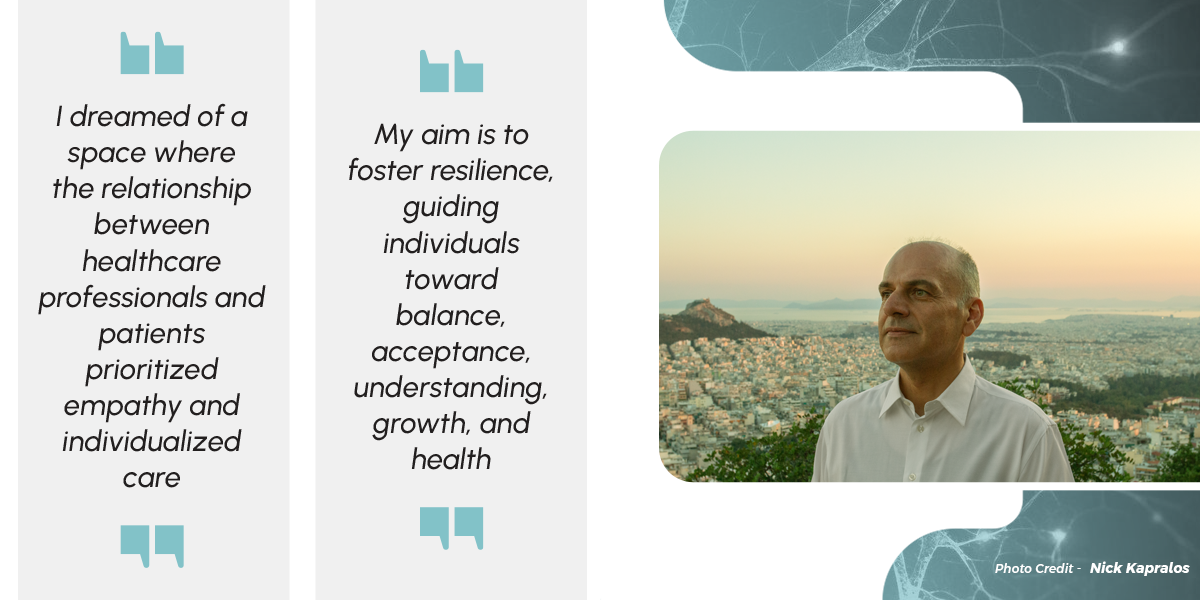
Building a Haven for Holistic Healing: The Founding of Psychosomatic Therapy and Research
Professional conviction often leads to a point where one must forge their own path. For Dr. Kokkinos, the conventional hospital environment, despite his years of service, began to feel increasingly restrictive. It was a system that, in his view, often prioritized procedural efficiency over human connection, a reality that clashed with his deeply held values of person-centered care. “I dreamed of a space where the relationship between healthcare professionals and patients prioritized empathy and individualized care,” he explained.
This powerful vision for a new kind of healthcare was not just a fleeting dream; it became the driving force behind his most advanced academic pursuits and his greatest professional undertaking. It led him to pursue doctoral and postdoctoral studies specifically in Psychosomatic Medicine, the field that perfectly encapsulated his life’s work. Armed with unparalleled expertise, he founded Psychosomatic Therapy and Research in Greece.
The organization was born from a clear and compassionate mission: “to support and empower people with respect and sincerity, helping them understand themselves and tap into their inner resilience.” His aim extends beyond mere treatment. “My aim is to foster resilience, guiding individuals toward balance, acceptance, understanding, growth, and health.” At its core, Psychosomatic Therapy and Research is a manifestation of his ideal healthcare model. It is a place where clinical practice, rigorous research, and comprehensive education converge to champion the principles of psychosomatic therapy. Through this platform, Dr. Kokkinos actively encourages interdisciplinary collaboration among healthcare professionals, seeking to redefine healthcare itself as a compassionate, holistic process that fully honors the profound complexity of the human experience.
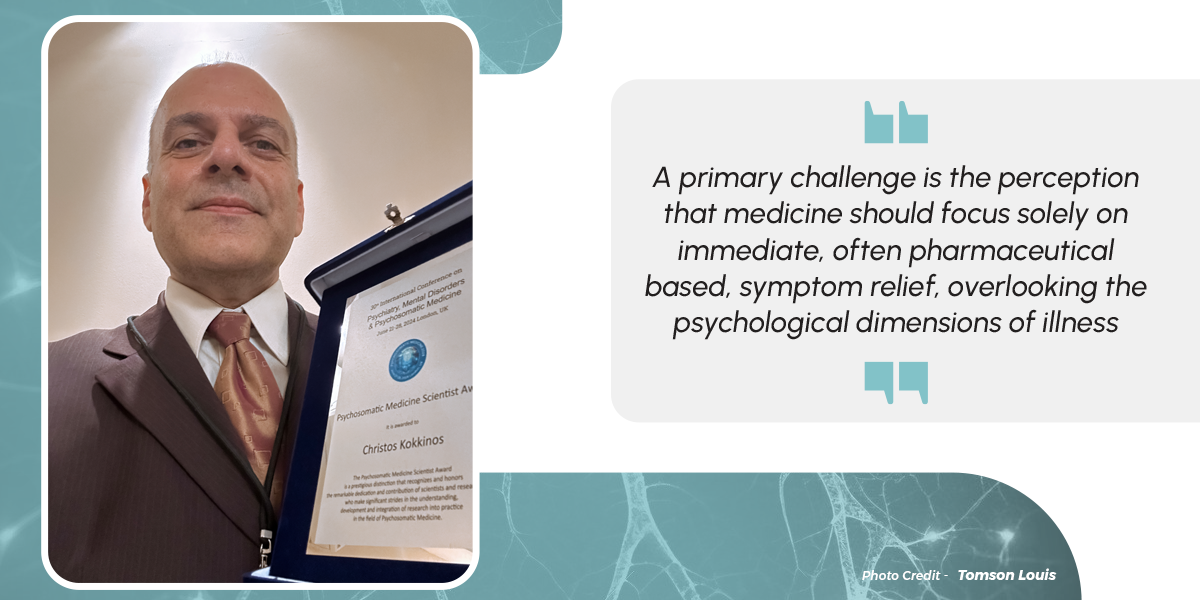
Navigating a Field of Skepticism: Championing a New Paradigm in Healthcare
Introducing a paradigm that challenges long established norms is never without its hurdles. Dr. Kokkinos confirmed that he faced significant skepticism, both from within the medical community and from society at large. A primary challenge, he noted, stems from a prevailing perception in modern medicine. “A primary challenge is the perception that medicine should focus solely on immediate, often pharmaceutical based, symptom relief, overlooking the psychological dimensions of illness.” This viewpoint naturally breeds doubt about the efficacy and necessity of psychological interventions in the context of physical disease.
Furthermore, this skepticism is not limited to professionals. Many patients, conditioned by a purely biological model of health, find it difficult to accept the influence of their own minds on their bodies. “Many patients struggle to accept that psychological factors, such as stress, can impact their physical health,” Dr. Kokkinos explained, which in turn can lead to broader public distrust in a psychosomatic approach.
To navigate this landscape of doubt, he built his strategy on three unwavering pillars. The first was scientific evidence. By grounding his work in rigorous research, he could demonstrate the validity of the mind body connection through empirical data. The second pillar was education. He dedicated himself to teaching both professionals and the public about the mechanisms through which psychological factors influence physical health, thereby demystifying the concept. The third and most crucial pillar was his steadfast commitment to a person centered, holistic approach. By consistently delivering compassionate and effective care that treated the whole person, he could provide living proof of his methodology’s power, allowing the positive outcomes of his patients to speak for themselves.
A Career of Impact and Recognition
While Dr. Kokkinos emphasizes that the unique stories of the people he supports are a continual source of inspiration, he acknowledged a significant professional milestone that amplified his mission on a global scale. In 2024, he received the prestigious International Psychosomatic Medicine Scientist Award in London. “This recognition enabled me to reach a broader audience through lectures and training sessions, reinforcing the global relevance of my mission,” he said. The award was more than a personal honor; it served as a powerful validation of the importance of his field and “strengthened my commitment to advancing psychosomatic health and educating future healthcare professionals with a holistic approach.”
His work today continues to be multifaceted. He sees patients in person and online, serves as a supervisor and expert in postgraduate programs, and delivers lectures at universities and organizations worldwide. He also organizes specialized training programs for healthcare professionals. His dedication to education recently culminated in the publication of a three book series titled Psychosomatic Therapy, available on Amazon, which focuses on somatization and psychosomatic diseases in psychotherapy.
His current research continues to explore “the role of psychological, psychosocial, and behavioral factors in the onset, progression, and management of physical and mental illnesses” while also developing targeted interventions.
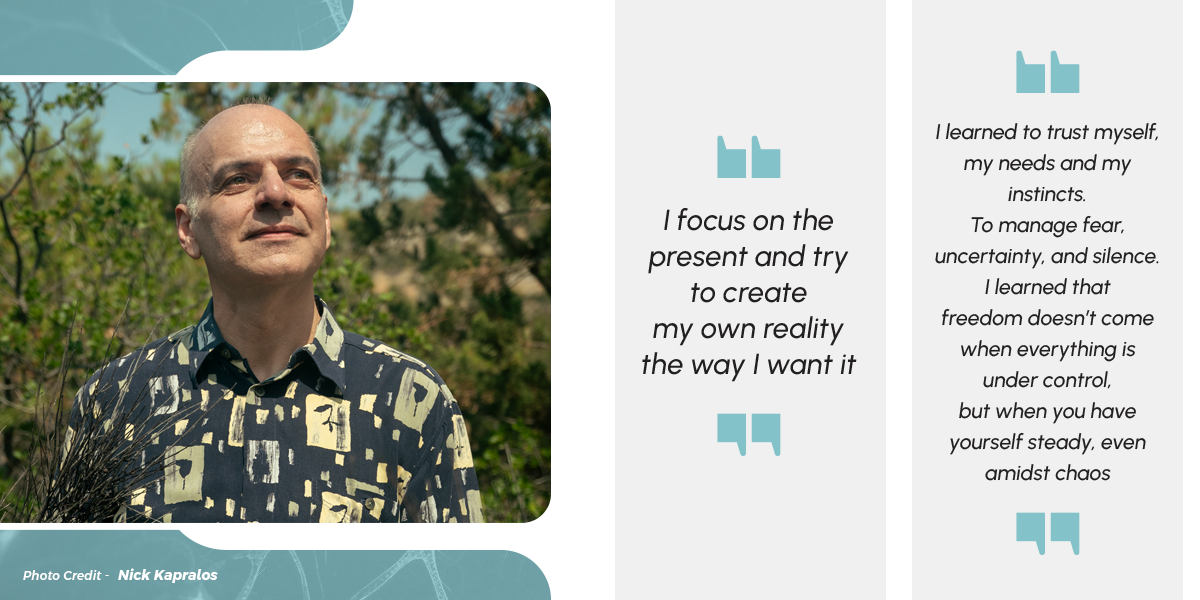
The Healer’s Own Path: Cultivating Resilience and Lifelong Learning
The demanding nature of his work requires a deep commitment to his own wellbeing. Dr. Kokkinos consciously cultivates balance by setting clear boundaries and dedicating time to his personal life. He participates in weekly supervision, which he describes as “a safe space to process emotions and challenges arising from my clinical work, research, and educational activities.” He nurtures his emotional equilibrium through connections with family and friends, spending time in nature, practicing mindfulness, and traveling. “I focus on the present and try to create my own reality the way I want it,” he shared.
Through his own journey, he has cultivated a profound sense of inner stability. “I learned to trust myself, my needs and my instincts. To manage fear, uncertainty, and silence. I learned that freedom doesn’t come when everything is under control, but when you have yourself steady, even amidst chaos.” This inner resilience is paired with a passion for continuous growth, perfectly encapsulated by the saying of the ancient Athenian statesman Solon: ‘I grow old, always learning.’ Dr. Kokkinos sees himself as “a passionate advocate for lifelong learning,” a practice that keeps him grounded and adaptable in a world of constant change.
A Vision for the Future of Healthcare: Guidance for a New Generation of Leaders
When asked what advice he would give to other healthcare leaders, Dr. Kokkinos emphasized that true leadership is an internal journey before it is an external one. “Leadership begins not when others follow you, but when you align with your own values and stand by yourself,” he stated powerfully. He offers encouragement to those who feel they are still searching for their path: “If you feel like you’re still ‘finding yourself’ and don’t know where you’re headed in life, don’t see it as a weakness. It might just be the start of your most important journey not around the world, but within yourself.”
For leaders specifically aiming to influence the intersection of mind and body, his advice is to adopt an interdisciplinary and person-centered approach, to delve deeper into research, neuroscience, and the possibilities offered by artificial intelligence, and to build collaborative networks of support.
This advice is the foundation of his own vision for the future. “Through my books, articles, lectures, seminars and training programs delivered worldwide to medical students, residents, and young specialists, I aim to shape a new generation of doctors and healthcare professionals,” he declared. His ultimate vision is for these future leaders “to provide individualized care that bridges psychology, neuroscience, and clinical practice, addressing the interplay between mental and physical health holistically—treating the person as a whole, beyond their symptoms.”
“Embrace adaptability as your greatest asset in an ever-evolving healthcare landscape. Lead with courage to challenge outdated systems and advocate for innovative, equitable solutions that prioritize patient dignity and access to care. True leadership means not just navigating change, but shaping it—by fostering resilience in your teams, leveraging technology ethically, and ensuring that every decision centers on the human experience.”
Dr. Christos Kokkinos is more than a healthcare professional; he is a philosopher, an educator, and a true leader. His work offers a powerful reminder that behind every illness is a human being, and within every person lies an incredible capacity for resilience and self-healing. He is not just following a path; he is creating one for others to follow toward a more complete and compassionate future for medicine.
